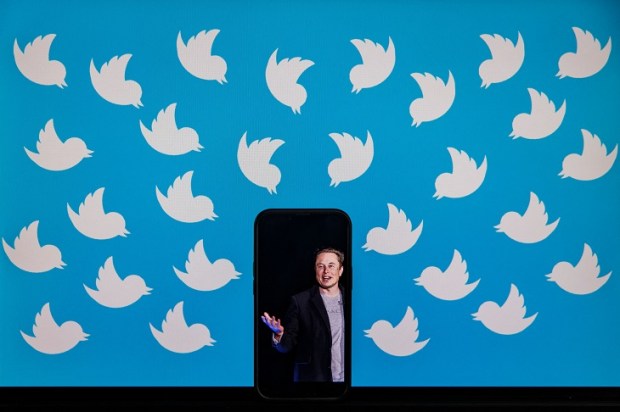I am sure you have felt it too – that tickle of distraction when you are reading an article, watching a movie, or going for a walk.
Your phone itches in your pocket and you stop for a moment to check your non-existent messages. Heaven forbid you lose your phone. Then it acts like a phantom limb – a ghostly extension of your body twitching at the edge of your mind.
How many times have you scrolled back through the last five minutes of social media in case you missed critical breaking news. Aliens? No. A third world war? Not quite. Oh, it’s just Albanese waving from the stairs of his private jet en route to sell off another chunk of our national dignity. Keep scrolling. Even at home you pause Netflix to re-load YouTube, then spend half an hour hunting around, half-watching random videos about cats pushing things off shelves.
The demise of the human attention span is a real thing.
Time wrote in 2015 that ‘you now have a shorter attention span than a goldfish’.
Goldfish focus on things for around nine seconds as they circle the pond, but a study from Microsoft has humans checking out webpages for roughly eight seconds before losing interest.
Something tells me our attention span has shrunk even more nearly 10 years later.
Before the advent of the digital age, it was believed the human attention span sat at 12 seconds. These seconds here and there seem arbitrary, but they make a big difference when it comes to latching onto a task.
As it stands, we’re giving up before reading the end of the sentence.
Hence all the line breaks in this article.
Adding line breaks and shortening paragraphs is a universal act of desperation from publishers who well aware that readers give up if they see an intimidating block of text in front of them.
One of the biggest changes to human behaviour is our inability to sit still and do nothing for a few minutes. Those under 24 (read that as 34 since this study is old), reach for their phone after only a minute or so of idleness.
There is a fair bit of academic disagreement on the genuine length of the attention span, with other researchers saying it has decreased from 2.5 minutes to 75 seconds and now sits around 47 seconds, as of 2021. Researchers squabble over the detail but everyone agrees that it is shrinking.
Worse, some claim that we check our phones around 77 times a day. That’s extraordinary.
Mind you, I had a sneaky look at my Samsung settings (Settings → Wellbeing and Parental Controls) and discovered that I look at my phone for roughly two hours a day. Considering my profession involves editing and writing, I’d wager my phone is competing with the 15 hours I spend using my computer. Yes, I am finding books harder to focus on. Yes, it takes constant discipline to correct this behaviour. Long walks help.
Despite this addiction to constant mental stimuli, we are producing and performing fewer tasks than ever. In other words, we are occupying ourselves with distractions instead of meaningful work.
None of this is to say the Digital Age is bad, only that we should consider disciplining ourselves. We are the child unleashed in the candy shop, running from shelf-to-shelf with our mouths open. It will probably take us a generation or so to calm down and wipe the chocolate off our faces.
Humans are social creatures and we have magically been granted access to unlimited information, entertainment, and conversations. Of course we are going to make mistakes, but just like the first caveman who burned himself on fire – social media is not something we should toss out of the cave with a suspicious glare.
To be fair, the original study regarding attention span that spawned the famous goldfish comment was focused exclusively on a small group of users who clicked off websites. The speed at which they did so is what was measured and interpreted. While this might have been a little ineffectual 10 years ago, most of our content, work, and social interaction is digital and the speed at which we lose interest in what’s on the screen has become a more accurate reflection of our ability to focus. It has also spilled into real-world activities.
Australian schools are complaining that high school children cannot read novels – even short ones – and are asking to replace coursework with short stories to better reflect TikTok culture. I am sure it does not help that teachers are insisting schoolwork be put online with homework reduced to multiple choice quizzes.
Even as someone who is fond of the digital world, this makes me groan.
The solution is not to pander to short attention spans, but to correct them. It would be far better to address the problem in school by banning phones during the school day and doubling down on non-digital learning. Forcing kids to write study notes out, copy the contents of the whiteboard, and complete exams with a good old-fashioned pen are all excellent ways to ensure that humans start out with functioning brain capacity.
Not to sound old, but in my day we were forced to hand-write an enormous amount of information – not as a form of torture – but because it is known that writing information out by hand creates different memory paths than simply reading or typing. I certainly remembered my handwritten physics notes more reliably than the Latin coursework I scrolled over.
What you do with your hands, you remember. It probably has something to do with how we learned tasks as young, barely evolved primates. Whatever the reason, schools need to restore this archaic form of information retention and ditch their addiction to time-saving ‘smart boards’ and online lessons that do the bulk of the work for students when the point is to make them do the work.
What kids do to themselves after they leave school is up to them.
While adults are frequently annoyed with themselves and attempt to self-correct this problem by taking up – I don’t know – yoga or slugging through a copy of War and Peace, our children have never developed a proper attention span in the first place.
The eSafety Commissioner, Opposition Leader Peter Dutton, and Prime Minister Albanese are all wrong when it comes to correctly identifying the harms of social media.
We don’t need to worry about our kids reading a troubling news story or being exposed to the violence of the world, I promise you they’ve seen worse on Netflix, it’s the culture of infinite scrolling and endless distraction that re-wires young minds in a way that permanently impedes their ability to function as adults when they are required to focus on difficult tasks.
This is not the fault of social media, per se. Human beings have always been social creatures that crave ‘the next thing’ all the time. We have to learn to live with a new level of information just as we did with every other technical leap, including the adjustment from letters to radio to TV.
The solution does not lie with social media or its regulation – it sits with parents, teachers, and ultimately, ourselves.
We can’t keep claiming to be the smartest, most progressive, and evolved of all generations and then find ourselves thwarted by an endless repository of cat memes.
Alexandra Marshall is an independent writer. If you would like to support her work, shout her a coffee over at donor-box.

























